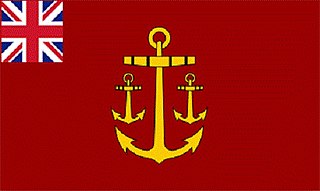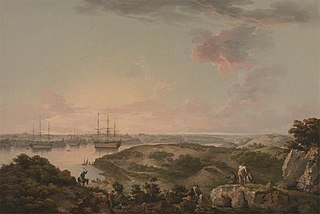Related Research Articles

Warrant officer (WO) is a rank or category of ranks in the armed forces of many countries. Depending on the country, service, or historical context, warrant officers are sometimes classified as the most junior of the commissioned officer ranks, the most senior of the non-commissioned officer (NCO) ranks, or in a separate category of their own. Warrant officer ranks are especially prominent in the militaries of Commonwealth nations and the United States.

A coast guard or coastguard is a maritime security organization of a particular country. The term embraces wide range of responsibilities in different countries, from being a heavily armed military force with customs and security duties to being a volunteer organization tasked with search and rescue without law enforcement authority. In most countries, a typical coast guard's functions are distinct from those of the navy and the transit police, while in certain countries they have similarities to both.

Military police (MP) are law enforcement agencies connected with, or part of, the military of a state. In wartime operations, the military police may support the main fighting force with force protection, convoy security, screening, rear reconnaissance, logistic traffic management, counterinsurgency, and detainee handling.

The Navy Board was the commission responsible for the day-to-day civil administration of the Royal Navy between 1546 and 1832. The board was headquartered within the Navy Office.

The commanding officer (CO) or commander, or sometimes, if the incumbent is a general officer, commanding general (CG) or general officer commanding (GOC), is the officer in command of a military unit. The commanding officer has ultimate authority over the unit, and is usually given wide latitude to run the unit as they see fit, within the bounds of military law. In this respect, commanding officers have significant responsibilities, duties, and powers.

Quartermaster is a military term, the meaning of which depends on the country and service. In land armies, a quartermaster is generally a relatively senior soldier who supervises stores or barracks and distributes supplies and provisions. In many navies, a quartermaster is an officer with particular responsibility for steering and signals. The seaman is a non-commissioned officer rank; in some others, it is not a rank but a role related to navigation.
A master-at-arms may be a naval rating, responsible for law enforcement, regulating duties, security, anti-terrorism/force protection (AT/FP) for a country's navy; an army officer responsible for physical training; or a member of the crew of a merchant ship responsible for security and law enforcement. In some navies, a ship's corporal is a position—not the rank—of a petty officer who assists the master-at-arms in his various duties. Historically, a master-at-arms was responsible for the training of soldiers during peace time, or actively involved in leading the defense of a fortification during war time.

Royal Navy Dockyards were state-owned harbour facilities where ships of the Royal Navy were built, based, repaired and refitted. Until the mid-19th century the Royal Dockyards were the largest industrial complexes in Britain.

A harbourmaster is an official responsible for enforcing the regulations of a particular harbour or port, in order to ensure the safety of navigation, the security of the harbour and the correct operation of the port facilities.
Seafaring is a tradition that encompasses a variety of professions and ranks. Each of these roles carries unique responsibilities that are integral to the successful operation of a seafaring vessel. A ship's crew can generally be divided into four main categories: the deck department, the engineering department, the steward's department, and other. The reasoning behind this is that a ship's bridge, filled with sophisticated navigational equipment, requires skills differing from those used on deck operations – such as berthing, cargo and/or military devices – which in turn requires skills different from those used in a ship's engine room and propulsion, and so on.
The United States Coast Guard is the coastal defense, search and rescue, and maritime law enforcement branch of the United States Armed Forces and is one of the country's eight uniformed services. It carries out three basic roles, which are further subdivided into eleven statutory missions. The three roles are:

A sea captain, ship's captain, captain, master, or shipmaster, is a high-grade licensed mariner who holds ultimate command and responsibility of a merchant vessel. The captain is responsible for the safe and efficient operation of the ship, including its seaworthiness, safety and security, cargo operations, navigation, crew management, and legal compliance, and for the persons and cargo on board.

The Nigerian Navy (NN) is a branch of the Nigerian Armed Forces. It is among the largest navies on the African continent, consisting of 25,000 personnel as at 2021. Its motto is "Onward Together".

Provosts are military police (MP) whose duties are policing solely within the armed forces of a country, as opposed to gendarmerie duties in the civilian population. However, many countries use their gendarmerie for provost duties.
Sector Commander is the position title of the commanding officer of a United States Coast Guard Sector, usually of the rank of Captain (O-6). The Sector Commander's second-in-command is the Deputy Sector Commander. Also reporting directly to the Sector Commander are the Command Master Chief (CMC), the Senior Reserve Officer, and the Sector's Auxiliary Coordinator.
A Sector is a shore-based operational unit of the United States Coast Guard. Each Sector is responsible for the execution of all Coast Guard missions within its Area of Responsibility (AOR), with operational support from Coast Guard Cutters and Air Stations. Subordinate commands within a Sector typically include Stations and Aids-to-Navigation (ATON) Teams. Some Sector commands also have subordinate units such as Sector Field Offices and Marine Safety Units that are responsible for mission execution in parts of the Sector's AOR. There are 37 sectors within the Coast Guard.
Port admiral is an honorary rank in the United States Navy, and a former appointment in the British Royal Navy.

In the United States Navy, United States Coast Guard, United States Public Health Service Commissioned Corps (USPHS), and National Oceanic and Atmospheric Administration Commissioned Officer Corps, captain is the senior-most commissioned officer rank below that of flag officer. The equivalent rank is colonel in the United States Army, Air Force, Space Force, and Marine Corps.

A King's Harbour Master is a harbourmaster and public official in Canada and the United Kingdom. Their official responsibilities includes enforcing the regulations of a particular harbour or port, ensure port operations are done correctly, and maintain safety of navigation.

Port Mahon Dockyard was a Royal Navy Dockyard located at Port Mahon, Menorca, Spain. It was opened in 1708 and in 1802 the port was ceded back to Spain. However a resident commissioner of the Royal Navy was still appointed as late as 1814. The dockyard was administered by the Navy Board and was part of the Mediterranean Fleet.
References
- ↑ Hammond 1974, p. 119
- ↑ Title 33, Code Federal Regulations, Part 1.01-30 Archived June 13, 2011, at the Wayback Machine
